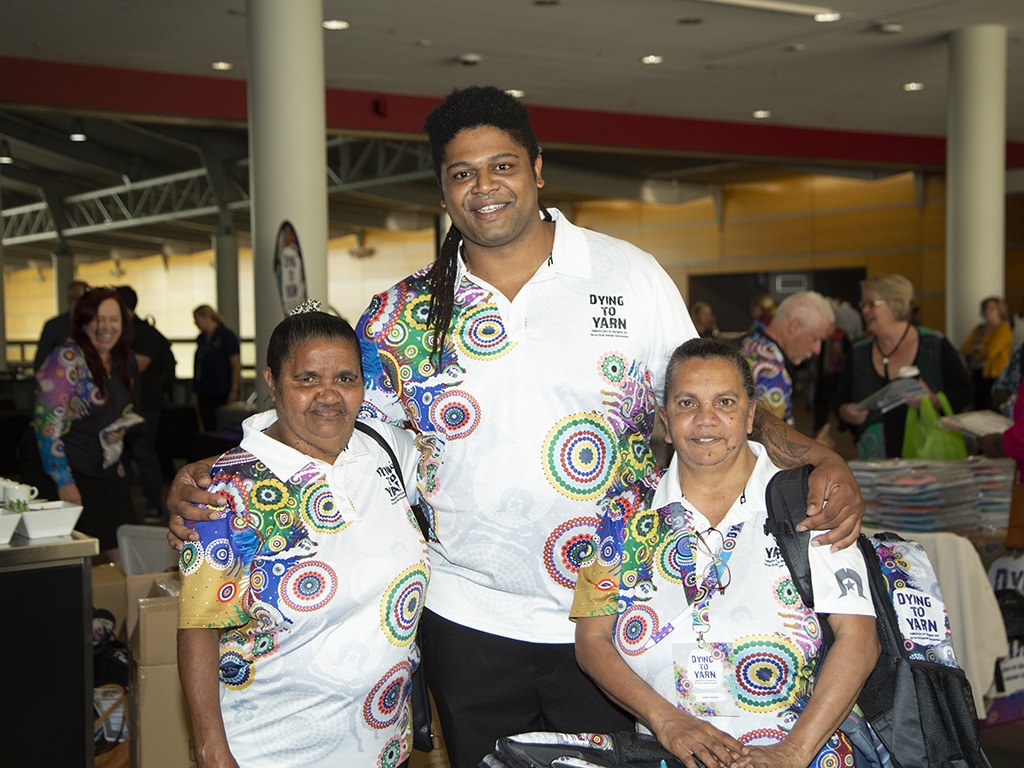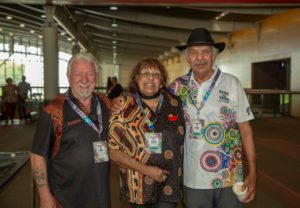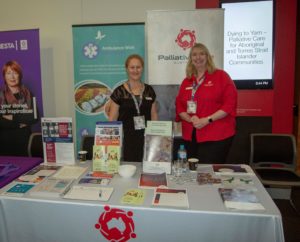Dying to Yarn breaks down barriers

Over 200 Indigenous and Non-Indigenous Health Professionals, Elders and Community members from across the country gathered in Brisbane recently to attend the inaugural Dying to Yarn – Palliative Care for Aboriginal and Torres Strait Islander Communities symposium held on 1 November 2019.
The symposium program featured speakers discussing holistic models of palliative care, advance care planning, grief, loss and bereavement, cultural and spiritual care.
The event was organised by Eliza Munro and Aurora Hodges from the Program of Experience in the Palliative Approach (PEPA) to raise awareness of palliative care and a “good death” amongst the Indigenous community.
An undignified death leads to emotional and spiritual distress for Aboriginal and Torres Strait Islander patients, families and communities. The symposium provided delegates the opportunity to discuss the often-taboo subject of death and dying, with one delegate commenting: ‘long overdue and need more like this; good to hear the Indigenous voice’.

Queensland PEPA Indigenous Project Officer, Eliza Munro said “there are significant gaps and barriers for appropriate end-of-life care for our Indigenous communities; we cannot address those barriers if there is no discussion. Education and knowledge shared in this area can assist those on their end-of-life journey, ensuring it is one of comfort, dignity, cultural respect and fulfilled wishes”.
“A ‘good death’ can be defined as being free from avoidable distress and suffering, in general accord with the patient's and family's wishes and reasonably consistent with clinical, cultural and ethical standards,” said Aurora Hodges, Queensland PEPA Manager.
“Death and dying isn’t something they always want to talk about, the other thing, too, is hospitals can be a scary place for Aboriginal people because of past history with hospitals.”
“It’s not even just palliative care, it’s actually going to a hospital at all [that] can be quite a bad experience because of past atrocities … that can affect people wanting to come."
“It’s a two-way process, we need to get Aboriginal people in the community learning about palliative care and how it can help them, we also need non-Indigenous health staff to learn about how to care for Indigenous people in a culturally appropriate way because it’s not the same as [non-Indigenous people],” Ms Hodges said.
The varied speakers encouraged more yarning amongst community to allow one to express the preferred care for their end-of-life journey, reflect on memories, say goodbyes, attend to unfinished business and live well during their final footprints.
Dying to Yarn is expected to be an annual gathering with plans to hold the event in a different state each year.
 For more information on fully funded palliative care workshops or PEPA placements, contact PEPA in your state at www.pepaeducation.com
For more information on fully funded palliative care workshops or PEPA placements, contact PEPA in your state at www.pepaeducation.com
